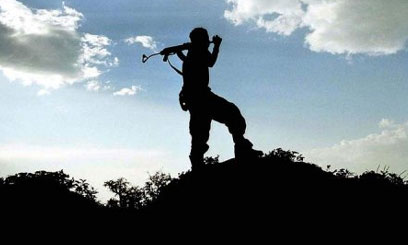UNITED NATIONS, Aug 9 – Ethiopia and Djibouti are leading East African nations pressing the UN Security Council to step up sanctions on Eritrea over terror accusations, diplomats said.
Pressure for action has mounted since a UN monitoring group said last month that the Eritrean government was behind planned bomb attacks in the Ethiopian capital during an African Union summit in January.
The UN experts also said Eritrea was arming and supporting insurgents in Somalia, including the Shebab group linked to Al-Qaeda.
An East African regional group called for sanctions against Eritrea’s mining interests and banning a tax the radical government puts on remittances sent back by Eritreans abroad.
Ethiopian and Djibouti envoys have been lobbying the 15-member Security Council on the case, which could raised Wednesday at a council meeting on Somalia.
“If the Security Council is serious about fighting terrorism, then we should expect it to discourage Eritrea from taking its dangerous positions,” Ethiopia’s Ambassador to the United Nations Tekeda Alemu told AFP.
“African representatives are lobbying but we believe this is the responsibility of the entire Security Council.”
A summit of the Inter-Government Authority on Development — which includes Djibouti, Ethiopia, Kenya, Somalia, Sudan and Uganda — last month called for toughened UN and African Union sanctions against Eritrea.
The summit, which condemned Eritrea for its “active part in destabilizing the region”, was held just before the release of a damning report by the UN Somalia-Eritrea monitoring group.
The report said Eritrea was giving financial and logistical support to armed opposition groups in Djibouti, Ethiopia, Sudan and possibly Uganda.
Eritrea was also behind a failed plot to disrupt an African Union summit in Addis Ababa that had planned to bomb several civilian and government targets, it added.
The country gets most of its money from the two percent “diaspora tax” reportedly imposed by diplomatic missions around the world. Its growing mining sector, especially for gold, is soon expected to become a major source of revenue in the impoverished company.
A number of political, military and intelligence officials involved in “people smuggling, arms trafficking, money laundering and extortion” were responsible for “systematic subversion” of the Eritrean government and ruling party, according to the UN report.
The experts said all East African governments had to be on guard against the growing Eritrean threat and that the Security Council should order greater international surveillance of Eritrean banks and diplomatic missions.
Eritrea gained independence from Ethiopia in 1991 after a 30-year war. Ethiopia has since accused its neighbor of aiding rebel groups such as the Oromo Liberation Front and Ogaden National Liberation Front.
A border war between the countries in 1998-2000 left some 80,000 dead. In April, Ethiopia’s Prime Minister Meles Zenawi said his country was ready to help the people of Eritrea topple Issaias Afeworki’s regime.
The UN Security Council imposed one round of sanctions against Eritrea in December 2009 over its support for insurgents in Somalia. US President Barack Obama’s administration has since faced calls to add Eritrea to its list of state sponsors of terrorism.
“These new sanctions may be difficult to carry out but there is certainly agreement on the Security Council now that something has to be done about Eritrea,” said a Western diplomat at the UN.










































